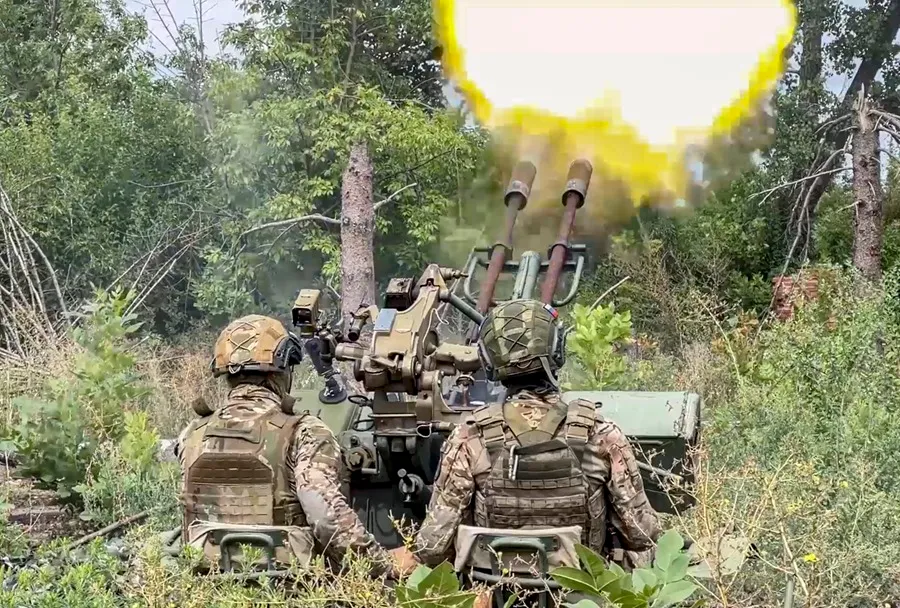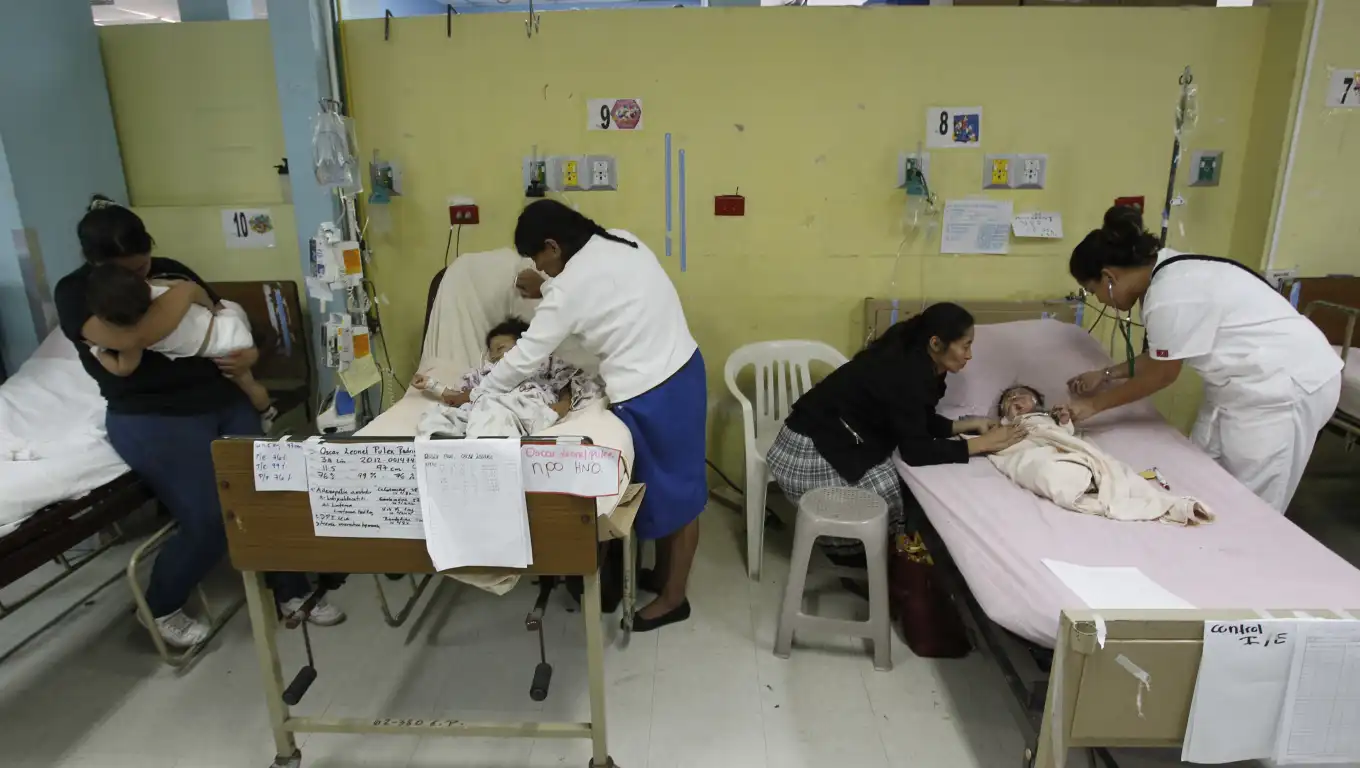International
Ukraine strikes with its drones one of the biggest blows of the war to the Russian arsenal

Faced with the resistance of its partners to lifting the ban on using their long-range missiles against Russian territory, Ukraine once again resorted to its own drones to hit the enemy rearguard with a massive attack that hit a warehouse of missiles, ammunition and aerial bombs in the city of Toporets in the Tver region of western Russia.
According to sources of the Ukrainian espionage, the attack was a joint operation by the Security Service of Ukraine (SBU), the Kiev military intelligence and the special forces of the Army and reached an ammunition depot in which Iskander and Tochka-U missiles were stored, in addition to aerial bombs and ammunition for artillery.
According to the Russian Telegram channel Astra, the warehouse in question, located in the city of Toporets in the Tver region, was hit by six Ukrainian kamikaze drones around 3.30 a.m. local time (00.30 GMT).
The Ukrainian portal Militarni, specialized in defense matters, has revealed that the attacked unit is 541690 of the Main Directorate of Missiles and Artillery of Russia (GRAU), in information that includes the coordinates of the attacked tank.
According to the balance sheet offered by the Russian Ministry of Defense, 54 drones were shot down throughout Russian territory during last night’s Ukrainian attack, 27 of them over the Kursk region, the scene of a military operation in Kiev since last August 6.
The authorities of the Tver region ordered the evacuation of part of the population of the area where the anti-aircraft defenses were activated in the city of Toporets, of about 11,400 inhabitants, located 460 kilometers from the Ukrainian border and where the attacked weapons warehouse is located, which had already been the target of the Ukrainian drones on two other occasions during the war.
Access to the city was reopened on Wednesday afternoon, when the evacuees were able to return to their homes.
According to the governor of Tver, Igor Rudenia, the attack has not caused fatalities or serious injuries.
Ukraine has made attacks on military airfields and missile and air bomb deposits one of its top priorities during the last months of the war, with the aim of reducing Russian air superiority.
According to data from the Ukrainian Army, Russian warplanes launch a hundred airstrikes every day against Ukrainian positions, infrastructure and inhabited areas, often causing civilian victims.
Through the massive use of guided air bombs – conventional high-power explosives equipped with their own navigation systems that allow the planes to launch them from outside the reach of enemy defenses – Russian aviation destroys Ukrainian defensive structures to pave the way for ground troops.
Kiev has insistently asked its main allies to allow it to multiply the effectiveness of its attacks on airfields and related infrastructures located within Russia with the use of its long-range missiles for this type of attack.
Given the resistance that its partners have shown so far, Ukraine must be content with using its drones for this type of operation, which increasingly hit Russian military installations but have so far failed to significantly decimate Russian aviation.
None of the countries with the capacity to transfer long-range missiles to Ukraine has given the green light for the moment to this request from Kiev, which is welcomed by countries with less military power and by some leaders of Western supranational organizations such as NATO, whose Secretary General, Jens Stoltenberg, said on Monday that he “applauds” the efforts of the allies to take this step.
Speaking to a Russian radio, Kremlin spokesman Dmitri Peskov criticized Stoltenberg for “not taking seriously” the warnings in this regard by Russian President Vladimir Putin, who said last week that giving permission to Kiev to attack Russian territory with long-range weapons will be interpreted with Moscow as a NATO entry into the war against Russia.
Peskov linked Stoltenberg’s words to the imminence of the end of his mandate at the head of the Atlantic Alliance. “It is clear that soon he will no longer have any responsibility for these words, but it is an extremely provocative and dangerous position,” he said.
International
Exclusive Tucson Neighborhood Shaken by Disappearance of Savannah Guthrie’s Mother

The disappearance of Nancy Guthrie, mother of well-known U.S. journalist Savannah Guthrie, has shaken the exclusive Catalina Foothills neighborhood in northern Tucson, Arizona. For the past eleven days, the area has become the focus of an intensive investigation and constant media attention.
The 84-year-old woman was last seen on January 31, when she returned home after a family dinner. Since then, authorities have released few details about the suspected abduction.
“It is worrying that an elderly person could be the victim of a crime like this in her own home; we are a community of retirees,” Mario Ruiz, a resident who lives near the property, told EFE.
He explained that neighbors in the area tend to respect each other’s privacy, and many homes do not even have fences, surrounded only by the desert landscape about 110 kilometers from the Mexican border.
Support for the family is visible in an improvised altar set up outside Guthrie’s house. Flowers, candles and a message written on a stone — “Please pray, bring her home” — reflect the concern felt by the community.
During a visit to Catalina Foothills on Wednesday, a strong presence of FBI agents could be seen patrolling nearby roads and neighborhoods in search of any clue that might help locate Guthrie.
Officers have been checking bushes, trash containers and surrounding areas near the residence, which is located in one of Tucson’s most exclusive districts, close to shopping centers, private golf courses and resorts.
International
Over 50 Civil Groups Urge House to Impeach DHS Secretary Kristi Noem

More than 50 civil society organizations, including Latino collectives and migrant advocacy groups, on Tuesday urged the U.S. House of Representatives to open impeachment proceedings against Homeland Security Secretary Kristi Noem, whom they accuse of leading a migration policy that is “violent, reckless, and contrary to the Constitution.”
The request was submitted through a letter sent to House Speaker Mike Johnson and other legislative leaders. In the document, the organizations argue that Noem has encouraged repressive practices that have left multiple victims and have “intentionally undermined the mission of the Department of Homeland Security (DHS).”
Among the signatories are Voto Latino, Freedom for Immigrants (FFI), Hispanic Federation, UnidosUS, and the Latino Victory Project. The groups emphasized that at least 187 lawmakers already support the impeachment initiative introduced in January by Representative Robin Kelly for alleged “high crimes and misdemeanors.”
The accusations include the alleged obstruction of congressional access to migrant detention centers and the excessive use of force, with at least 14 people shot since July 2025. They also cite three documented deaths, including those of U.S. citizens Renee Good and Alex Pretti.
The organizations further criticized the detention of migrant children, pointing to the case of five-year-old Liam Conejo Ramos, arrested in Minnesota last month, which sparked nationwide controversy.
They also denounced that operations carried out by Immigration and Customs Enforcement (ICE) have resulted in due process violations, unlawful detentions of Indigenous citizens, and disregard for court orders. According to the signatories, Noem has “dismantled” civil rights protections within the DHS and has shown a lack of understanding of constitutional principles such as habeas corpus.
Central America
Guatemala to Phase Out Longstanding Medical Cooperation Agreement with Cuba

Guatemala’s government announced on Tuesday that it will end this year a cooperation agreement with Cuba that has brought doctors from the Caribbean nation to work in the Central American country.
Guatemala’s Health Ministry told EFE that the program, which has been in place for nearly three decades, will be phased out progressively throughout 2026.
According to the same source, there are currently 412 Cubans in Guatemala under the agreement, including 333 physicians.
Cuban medical brigades assigned to Guatemala have traditionally been deployed to various regions of the country to provide primary health care to local communities.
“The decision follows a technical assessment aimed at strengthening the sustainability of the national workforce and consolidating the public health system’s own capacities,” the Guatemalan ministry said.
Earlier this week, lawmaker Sonia Gutiérrez, from the left-wing Winaq party, warned that the move “could be an inhumane act that threatens the health and lives of the country’s most vulnerable populations,” given the historic importance of Cuban doctors in providing medical care.
For that reason, the legislator summoned Health Ministry authorities to Congress, as permitted by law, to provide further details about the decision.
Former human rights ombudsman Jordán Rodas Andrade also weighed in on social media, recalling that “for 27 years Cuban doctors have been the backbone of health care in Guatemala’s most neglected areas,” and stressing that “ending this agreement is an act of ingratitude that leaves the most vulnerable unprotected.”
President Bernardo Arévalo’s government told EFE that, in order to guarantee continued care, it will implement a gradual replacement plan that includes hiring national personnel.
-

 Central America5 days ago
Central America5 days agoSalvadoran fans plan birthday surprise for Shakira at historic show
-

 Central America4 days ago
Central America4 days agoGuatemala isolates Barrio 18 leader after attacks that killed 11 police
-

 Sports5 days ago
Sports5 days agoShakira ignites El Salvador with near sold-out residency at Mágico González Stadium
-

 International2 days ago
International2 days agoU.S. Health Department says CDC grants no longer match agency priorities
-

 International20 hours ago
International20 hours agoOver 50 Civil Groups Urge House to Impeach DHS Secretary Kristi Noem
-

 International2 days ago
International2 days agoICE Arrests Reach 379,000 Under Trump, Testimony Shows Amid Minnesota Shootings
-

 Central America20 hours ago
Central America20 hours agoGuatemala to Phase Out Longstanding Medical Cooperation Agreement with Cuba
-

 International2 days ago
International2 days agoDespite homicide drop, overall deadly violence remains high in Mexico: study
-

 International2 days ago
International2 days agoJet Fuel Crisis Hits Cuba: Flights Disrupted, Air Canada Cancels Services
-

 International2 days ago
International2 days agoSheinbaum Urges Mexico to ‘Jealously’ Guard Sovereignty at Air Force Anniversary
-

 International2 days ago
International2 days agoMEPs Approve Plan That Could Fast-Track Rejection of Some Asylum Claims
-

 International20 hours ago
International20 hours agoNew York’s New Archbishop Names Óscar Romero as His Favorite Saint
-

 International2 days ago
International2 days agoMexico Rises Slightly to 141st in Global Corruption Perceptions Index 2025
-

 International20 hours ago
International20 hours agoExclusive Tucson Neighborhood Shaken by Disappearance of Savannah Guthrie’s Mother
-

 International2 days ago
International2 days agoChile Unveils Latam-GPT to Give Latin America Its Own AI Model


























